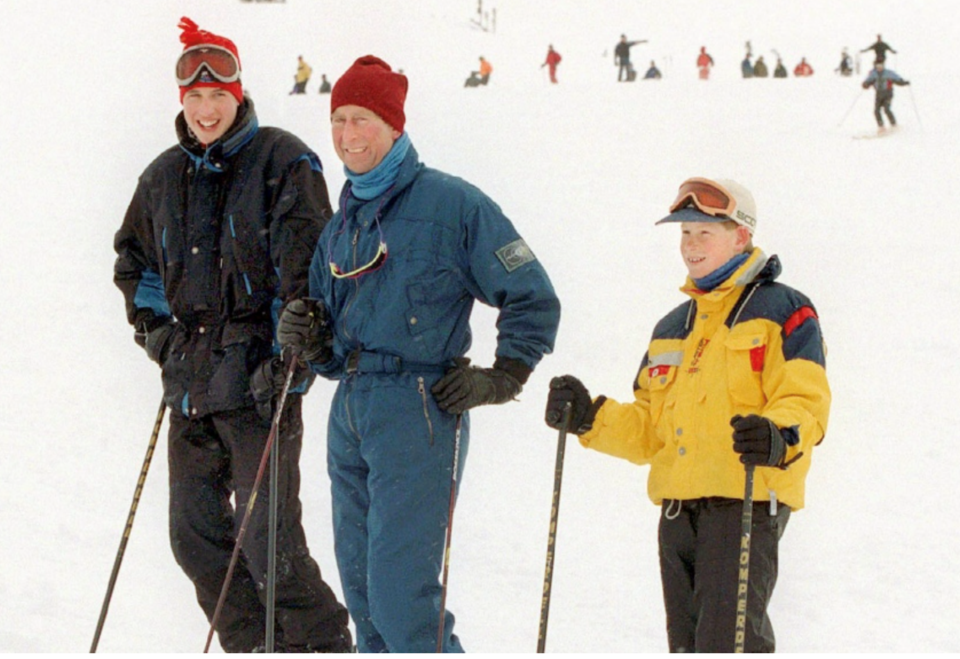In this week’s cover feature, you’ll read about the long-running Con Brio music festival, which is celebrating its 25th anniversary in the resort this year.
And next week, we’ll recognize 25 years of the Whistler Community Foundation (previously the Community Foundation of Whistler), before we turn our sights to the opening of the Whistler Mountain Bike Park… and its 25th season of operations.
Considering this trio of silver jubilees, one may be tempted to ask: just what the heck was in the Whistler water in 1998?
What else was this enterprising population of go-getters accomplishing with that late-’90s swagger? What other landmark headlines might we find if we took a stroll down memory lane?
Luckily, we can find the answers in our handy newspaper archive—and they might (not) surprise you!
THIS ALL SOUNDS FAMILIAR
Revisiting the year that was in Pique is an exercise in both nostalgia and déjà vu.
At the outset of 1998, Pique’s pages were full of talk of the upcoming Millennium (and associated local projects), as well as a potential Olympic bid.
A Jan. 23 cover feature probed the potential of a proposed Garibaldi at Squamish ski resort, while in that same issue, readers found a story with the headline, “Whistler council opposes Howe Sound LNG facility.”
A week later, Pique wrote about a bear not hibernating due to warmer-than-expected weather, and getting into trouble at the dump.
Bear researcher Michael Allen had been “in familiar contact with the old boy,” and reportedly had this to say about the bear: “He has a very large head.”
Around this time, the nascent Whistler Housing Authority was also looking to buy land and hire its first general manager—but seeing as it was founded in the fall of 1997, it is technically disqualified from this particular exercise. Sorry!
The similarities don’t end there.
In March 1998, Pique was reporting on an enhanced need for avalanche safety; a snowboarder who died in a tree well; a Royal visit from Prince Charles and his sons, William and Harry; and the injustice of the Indian Act in Lil’wat Nation governance.
In June, a story on how enhanced traffic on the Valley Trail merits caution; in July, a piece about a garbage-addicted bear who “sealed [its] own death warrant” (but no word on how big its head was).
But of all the timeless headlines peppering Pique’s pages in 1998, none are as effortlessly classic as this, from Nov. 13: “Town hall meeting fails to inspire public.”
Reusable until the end of time, that one.
THE GOLD STANDARD
Among the biggest news stories in Whistler in 1998 was the tale of Ross Rebagliati, the Whistler snowboarder infamously stripped of his gold medal at the Nagano Olympics when he tested positive for marijuana.
Despite, or perhaps because of, this fact, Rebagliati was certified a bonafide Whistler hero before he even flew back to Canada, and on Feb. 20, Pique wrote about how the snowboarder was “welcomed home by thousands.”
Up to 5,000 people jammed Village Square for the event, prompting Pique to note “a crowd this large has not been seen in Whistler since Rob Boyd won the 1989 World Cup downhill here, or at New Year’s Eve celebrations before First Night activities tamed things down.”
Not quite at the same magnitude, but hundreds of Whistlerites would again gather publicly to celebrate in December 1998, when the resort was officially awarded the 2010 Winter Olympic bid.
“Our world changed as of 20 minutes ago,” Mayor Hugh O’Reilly was quoted as saying right after the announcement. An accurate assessment, as crowds of thousands would soon become far more common in the resort.
The most controversial news story filling Pique’s pages in 1998, bar none, was the saga over developing 19 Mile Creek.
The heated discourse over the housing project near Alpine Meadows is now the stuff of local legend (among those who care about such mundane matters), and in revisiting it 20 years later in a 2018 interview with Pique, O’Reilly produced some timeless advice for all local elected officials.
“(It) was absolutely one of the most controversial projects brought before council. It had failed at least twice previously, and the third time, when we finally approved it, I can tell you, I had friends, and these are good friends, who didn’t talk to me for a couple of years. They were so angry that we did that project,” he said.
“There are projects you have to take a bullet for—you have to be willing to stand up to it … And I said to council, you know, this one, you’ve got to take a bullet. This is a good project, it’s appropriate, and located right.”
LASTING LEGACIES
In retrospect, it’s undeniable: Whistler was on a heater in the late ’90s, blazing new trails in art, athletics and community, and securing legacies still serving us immensely well 30 years later.
It’s easy for newer Whistlerites to take things like the Whistler Housing Authority, the Whistler Community Foundation, and our Olympic legacies for granted.
But it’s worth remembering the pioneering individuals who made it all possible way back when, and all the hard-working locals carrying those legacies forward today—and considering how we might forge our own legacies for future generations to enjoy.




